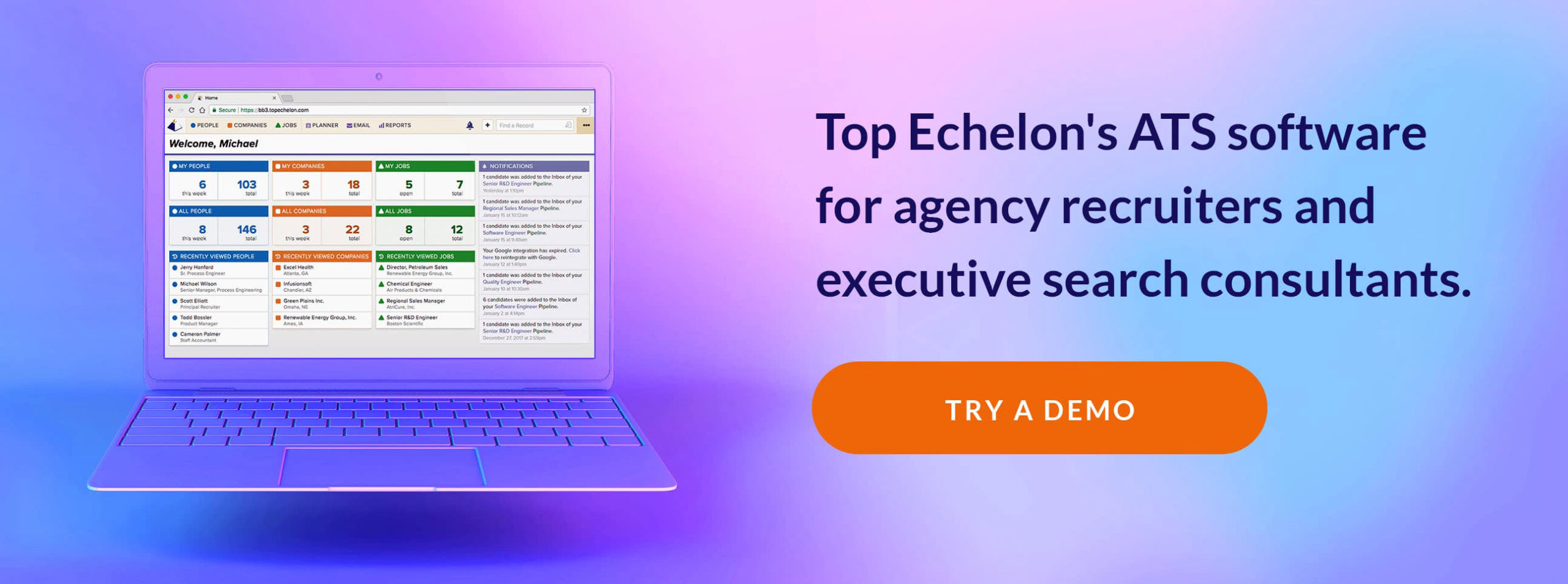You want to provide the best possible candidates to your clients. When you present good candidates, your clients will be happy and will hopefully choose one quickly. The better the placement, the faster you receive your fee.
You can weed out bad candidates by conducting employment reference checks. Then you know you are only presenting the best candidates to your client.
What is a reference check?
When you conduct an employee reference check, you contact a candidate’s former employers, schools, and other sources. The purpose of reference checks is to help you learn more about your candidate’s work history, education, and characteristics. Conducting employment reference checks helps you determine which of your candidates are the best fit for your client.
You can compare what you learn in the reference check with what the candidate told you. The check helps you find out if your candidate is honest.
The importance of reference checks
More than half of employers (56%) have found a lie on a resume. Common things candidates lie about include:
- Embellished skill sets (62%)
- Embellished responsibilities (54%)
- Dates of employment (39%)
- Job titles (31%)
- Academic degrees (28%)
Your candidates might have stretched the truth or even completely made up their previous experience. Conducting an employment reference check lets you make sure your candidates are who they say they are. You want the candidates to be what you promised your client.
Having information from a referee can entice your client to interview a candidate. The reference gives credibility to your candidate. It shows that someone else can vouch for the candidate, too.
Doing reference checks is a great example of how to be a great recruiter. It shows you are thorough and only present the best candidates.
There might be consequences if you don’t conduct employment reference checks or if they aren’t thorough. If your candidate lied and doesn’t meet the client’s needs, the client might sue you for errors and omissions, damages, intentional wrongdoing, or something else. Even if you didn’t intentionally try to deceive your client, you did intentionally present the candidate without doing a reference check.
When to check references
You might be wondering when to check references in the hiring process. You should check references before you give a candidate profile to your client. Ideally, you should include excerpts of the reference interview in the profile.
You do not need to check every reference before you present the candidate to your client, but you should at least talk to one referee. Even talking to just one referee can help you decide if the candidate is worth passing along.
Don’t wait until an offer is pending to check the remaining references. At that point, it might be too late. You might discover something negative about the candidate. Check the references before you offer the job so you can avoid a damaged relationship between you, the client, and the candidate.
How to conduct a reference interview
While you can simply pick up your phone and call a candidate’s references, it’s better to be prepared before you make contact.
Getting permission
Before you check a candidate’s references, you should obtain written consent from the candidate. Make sure your candidate consent form is carefully written. You don’t want to be charged for invasion of privacy later.
Ask the candidate for permission to call their current employer. Contacting the current employer could put the candidate’s job at risk, especially if the employer doesn’t know that the candidate is looking for a new job.
Avoiding impostors
You need to make sure the reference is really who you are contacting and talking to. Sometimes candidates have a friend or coworker pose as a previous boss.
Look up the referee before you call. Learn a little bit about them. Try to call the referee at the business and not at a personal phone number.
After you talk to the referee, connect with them via work email or LinkedIn. Thank the referee for taking time to talk to you. If the person says they’ve never talked to you before, that’s a sure sign that you spoke to an impostor.
If you have letters of recommendation from referees, you should still talk to those referees. Letters can easily leave important information out. Or, candidates might forge recommendation letters.
Conducting the interview
There isn’t one way to conduct a reference interview, nor is there a specific set of questions you should ask. What you ask will depend on your situation and what you want to find out. However, there are some general questions that you will probably always ask a reference.
First, you should fact check what the candidate told you. Ask the reference about the candidate’s job responsibilities, length of service, and skills.
Ask the referee what it was like to work with the candidate. You might ask about attitude and work ethic. Find out what the candidate can improve on. Ask the referee if they would ever hire the candidate again. Have the referee give you examples of the candidate and their skills at work.
Don’t just listen to what the referee is saying. Listen to how they are saying it. Tone is important during an employment reference check. Pauses, hesitation, and lack of enthusiasm might tell you that there’s more that the referee isn’t telling you. Excitement might indicate that this is a strong candidate.
As you interview the reference, don’t try to manipulate the conversation. You need the reference to give you honest answers, not the answers you want to hear.
After you complete a reference check, record your notes and quotes from the referee in your applicant tracking system. Creating a record in your ATS will help you quickly find your notes and pass them on to your client.

